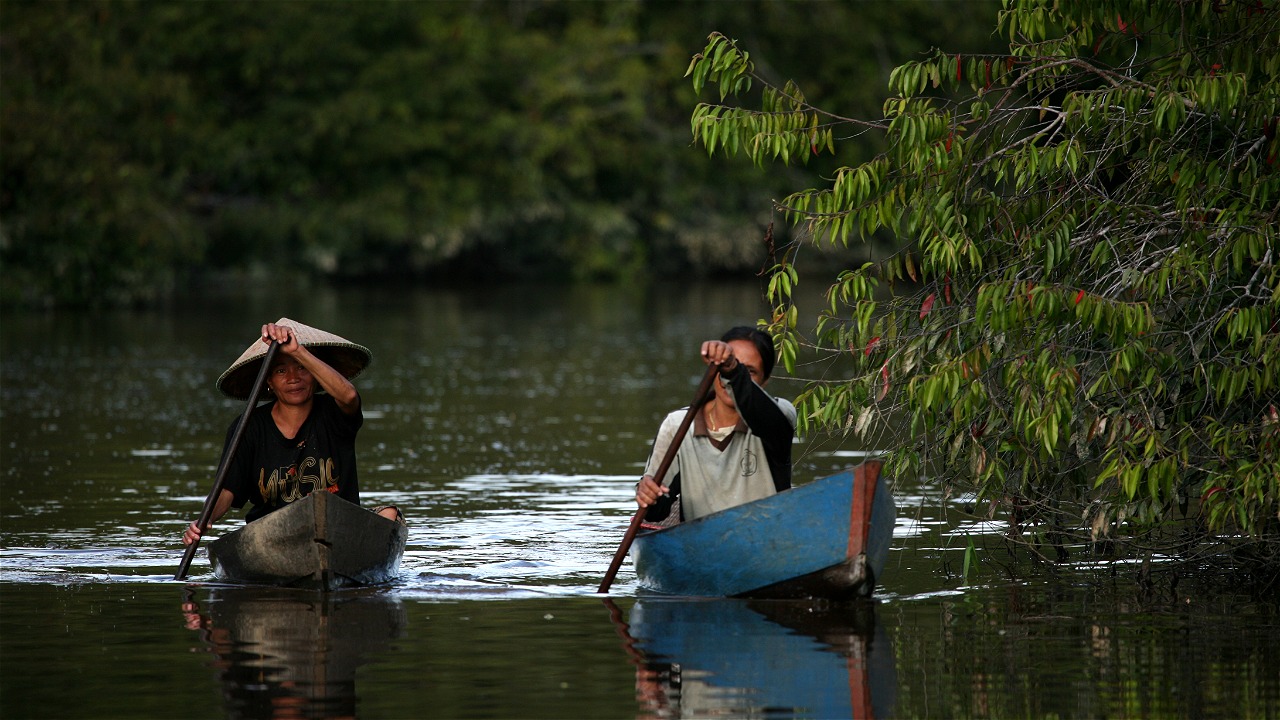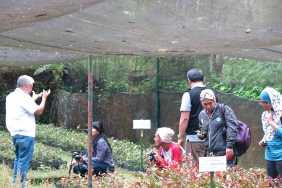NOTES FROM WWF HOB GLOBAL INITIATIVE LEADER - FEBRUARY 2014
By: Dr Thomas Maddox
As we move into a new year, the future of WWF's conservation work in Borneo is becoming increasingly clear. In 2014 we have set out three key issues: the need for better coordination between the various WWF projects running across Borneo; the need for WWF leaders at this project/local level to establish clearer ownership of the program; and the need for some clarification between projects inside and outside the Heart of Borneo boundary. By the end of 2013 there was initial approval of a new strategy for WWF's Borneo program that seeks to address these three challenges. This year has seen the establishment of a new and coordinated approach to action, with several new, unprecedented, formally mandated positions in both the Indonesian and Malaysian offices; and the cooperation of its GIS experts providing technical support to the GIS needs of the three countries and the spatial planning working group.
Better management of WWF's resources must maximize the impact it makes at the landscape scale, as part of the solution. Globally, perceptions of the importance of environmental issues and the extent to which they are relevant to everyday life (not just a bonus to be grateful for when economic conditions are good) are increasing, but often we take one step forward and two steps back. The US Secretary of State's recent visit to Indonesia was an opportunity to release strong and very interesting statements on climate change in recent times... but at the same time the media both in Indonesia and back home in the UK was dominated by stories about the impact of flooding. While flooding may or may not be related to climate change, it is certainly related to environmental management. While both countries are focusing on the ongoing process of flood control (and the relative competence or otherwise of the politicians responsible for it), little attention is being paid to the causal factors. Urban planning, agricultural policy, forest and water management all play an important role, which in the long run affects the landscape's ability to deal with flooding issues. The failure of both countries to understand the environmental impact of all these essential factors has resulted in the current flood disaster, and the responsibility for this rests with a succession of policymakers, not just the current holders of power.
Borneo is rich in natural resources. These resources are an important driver for development across Borneo but they are also key to the island being able to respond to and mitigate future changes and events, whether it be unpredictable weather or permanent changes in climate. As with the floods in Jakarta and Somerset, many of the environmental impacts on Borneo's resources can be observed in its watersheds and river systems. But of course it is back to today's policy makers to understand these environmental values as being of direct economic value to them. It is up to them to manage forestry, agriculture and development issues in a way that allows for the development of Borneo that enhances the well-being of its people today, without compromising the well-being of future generations of Borneans.





